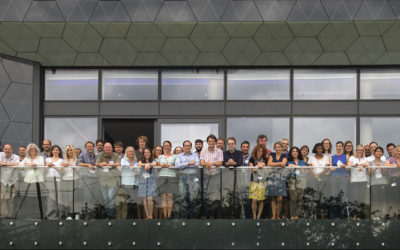
Aurora venue hire
We hire out our state-of-the-art conference and meeting facilities and exhibition spaces.
Our mission is to create space for collaboration within the British Antarctic Survey – addressing issues of global importance and helping society adapt to a changing world.. The Aurora Innovation Centre offers a space and support services for interdisciplinary collaboration to tackle environmental challenges and increase real-world benefit of polar research. Our aim is to advance our understanding of Earth as a sustainable planet, and contribute to looking for solutions for a Net Zero Carbon future. We host and hire out the Innovation Centre for various events and partners, read more below.
Book individual flexible desk space in our Collaboration Space at Aurora and gain valuable networking opportunities to broad scientific expertise and like-minded people. Aurora Members receive reductions on venue hire within BAS. To find out more please email us here.
We build partnerships with individuals, academics and businesses who share our values, and whose expertise and interests complement ours. Jointly we aim to address issues of global importance, helping society adapt to a changing world. Working in interdisciplinary partnerships and drawing on the expertise across our UK Research and Innovation family, such as Innovate UK and its programmes including the Knowledge Transfer Network and Innovate UK EDGE, strengthens our impact potential. Our partners are global, national and local. From groundwater monitoring in Morocco to high resolution climate modelling in the Himalayas, from fisheries management in Brazil to understanding arctic sea ice loss, polar expertise is relevant from north to south, from east to west. Our polar operations provide a testbed for innovation under extreme conditions, whilst our understanding of polar biodiversity contributes to a sustainable bioeconomy. We are keen to talk to you and explore how our expertise can add benefit to your work. To find out more please email us here.
The Aurora Conference Theatre, seminar rooms, meeting rooms and collaboration space can be hired by external organisations who share our passion for the environment. To find out more about working collaboratively with BAS, or if you would like to use our spaces, please explore our venue hire pages or email us here.

Non-discrimination: The Aurora is a space for all, no matter your identity. Discrimination on grounds of age, sex, race, religious beliefs, gender identity or sexual orientation has no place at British Antarctic Survey. Remember this when interacting with others. It is our responsibility to make sure the Aurora is a safe place for everyone – please tell us if you are worried about anything.
Accessibility information: The Aurora Centre has step-free access and accessible toilets at both levels of the building. The Conference Theatre and rooms are equipped with infrared assisted hearing. We are always striving to make our venue more welcoming to all. If you have any feedback or would like to request additional information, please don’t hesitate to get in touch.
The Aurora Innovation Centre is located at the British Antarctic Survey HQs in Cambridge. We are located a few minutes walk from Madingley Road free P&R with 4 electric vehicle bays, very easy access from the M11, and a bus service in/out of the city centre/train station. For Cambridge-based visitors, cycling is by far the easiest access option.
Director of Innovations and Impact
BAS Science Strategy Executive Group, Information Services team, Innovation team, BAS Management team, UK Polar Data Centre team, BAS Executive team

We hire out our state-of-the-art conference and meeting facilities and exhibition spaces.
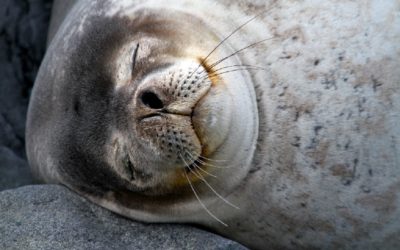
Find out more about the Aurora Collaboration Space memberships, and what we have to offer.
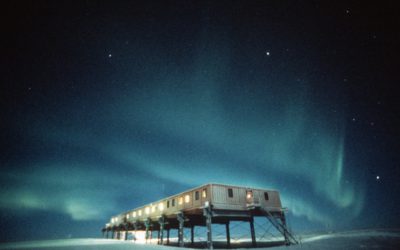
Please note that due to current Covid19 restrictions most of our events have been moved, or are being held virtually
19 September, 2017 by Pantea Lotfian
Soon after I started Camrosh Ltd, an innovation strategy consultancy, in late 2014, it became clear to me that despite having taken every effort to set up a comfortable office …
6 April, 2020
British Antarctic Survey (BAS) has precautionary measures to limit the spread of COVID-19. Our organisation continues to function well in spite of most of our staff working from home. Science and support teams who have completed summer fieldwork are currently being repatriated to UK.
21 July, 2017
The new Aurora Innovation Centre that will support cross-discipline research to tackle environmental challenges and increase the real-world benefit of polar research was officially opened today (Friday 21 July) by …
Pushing forward our understanding of calcium production in the marine environment
We are working on a raft of measures to reduce our carbon emissions at our Cambridge Headquarters, including installation of solar panels on the car park and roofs of buildings, and adding insulation to our Logistics building.
This collaborative project is born from exploring novel ways of visualising environmental data and telling the climate change story. Read more about the project and the science behind it through the project page.
Does the cold affect how animals grow? Are skeletons different in Antarctic marine species, which survive almost permanently below 0°C? It is well known that animals grow at different rates …
European Marine Biological Resource Centre
IceNet is a probabilistic, deep learning sea ice forecasting system developed by an international team and led by British Antarctic Survey and The Alan Turing Institute [Andersson et al., 2021]. …
An estimated 75% of all the litter in our oceans is plastic, and around 5 million tonnes of plastic waste enter the ocean annually. Scientific observations of a significant concentration …
This long-term study monitors the impact of marine plastics and other debris on breeding seabirds at Bird Island. Researchers have monitored the levels of marine plastics and other material from …
Polar View delivers information about sea ice direct to ships operating in the Southern Ocean.
How do animals survive in the freezing seas of Antarctica? Although Antarctic fish have evolved over millions of years to keep working at such low temperatures, we still do not …
In this collaboration with the Natural History Museum (NHM) and the University of Liverpool, we have developed novel methods for using existing data to contribute to marine conservation and fisheries …
Can a fungus from an Antarctic soil be used to control weevil larvae causing damage to UK soft fruits and forestry? The larvae of weevils, which overwinter in soil and …
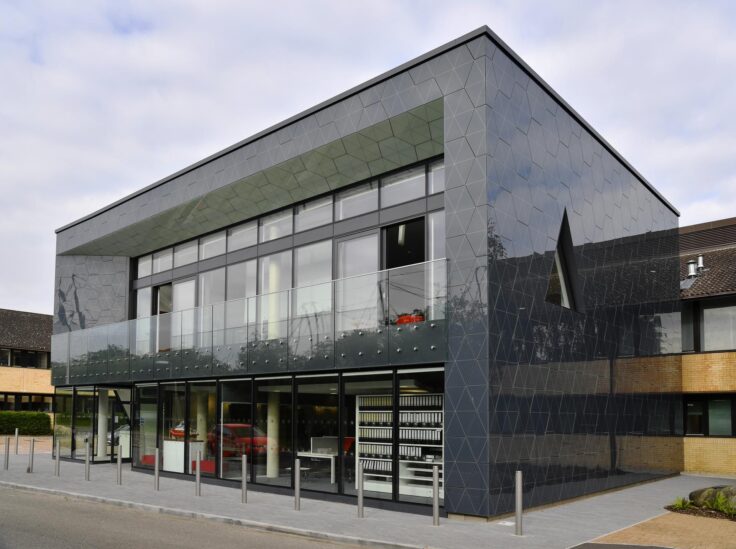
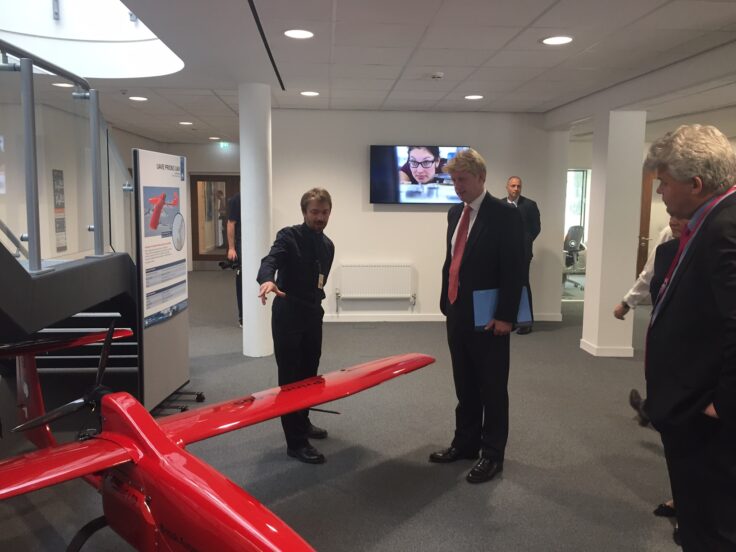
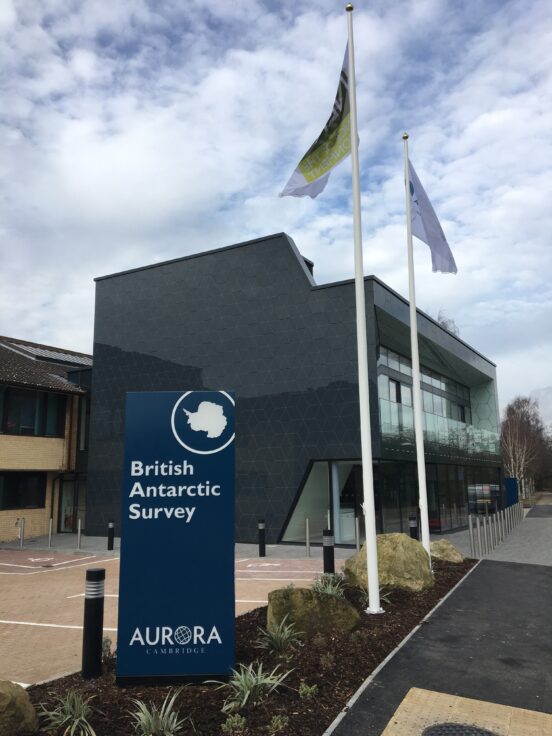

Please click here for more information, or contact us via email.
Beatrix Schlarb-Ridley – Director of Innovation and Impact

